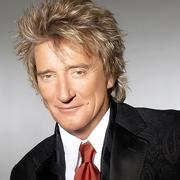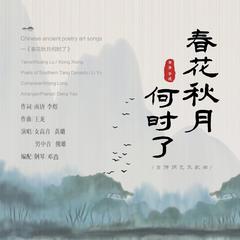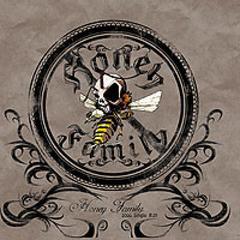Rod Stewart
Rod Stewart may have began his career as a respected singer, yet that respect eroded as he got older, as he became more concerned with stardom than music. While he has recorded some terrible albums — and he would admit that freely — Stewart was once rock & roll's best interpretive singer as well as an accomplished songwriter, creating a raw combination of folk, rock, blues, and country that sounded like no other folk-rock or country-rock. Instead of finding the folk in rock, he found how folk rocked like hell on its own. After Stewart became successful, he began to lose the rootsier elements of his music, yet he remained a superb singer, even as he abandoned his own artistic path in favor of following pop trends. Stewart began his musical career after spending some time as an apprentice with the Brentford Football Club, touring Europe with folksinger Wizz Jones in the early '60s; during this time he was deported from Spain for vagrancy. When he returned to England in 1963, he joined the Birmingham-based R&B group Jimmy Powell & the Five Dimensions as a vocalist and harmonica player. The band toured the U.K. and recorded one single for Pye Records that featured Stewart on blues harp. After moving back to London, he joined Long John Baldry's band, the Hoochie Coochie Men. The group recorded a single in 1964, "Good Morning Little Schoolgirl," that failed to chart, and soon afterward the group evolved into Steampacket. During the summer of 1965, the group supported the Rolling Stones and the Walker Brothers on a U.K. tour as well as recorded an album that remained unreleased until 1970. Early in 1966, Steampacket disbanded and Stewart became a member of the blues-rock combo Shotgun Express, which released one single that fall before splitting. Stewart then joined the Jeff Beck Group at the end of 1966. With the Jeff Beck Group, Stewart began his climb to stardom. He and the former Yardbird guitarist pioneered the heavy blues-rock team of a virtuoso guitarist and a dynamic, sexy lead vocalist that became the standard blueprint for heavy metal. Truth, the band's debut album, was released in the fall of 1968, becoming a hit in both America and Britain. The Jeff Beck Group toured both countries several times in 1968 and 1969, gaining a dedicated following. In the summer of 1969, they released their second album, Beck-Ola, which became another hit record in both the U.S. and U.K. However, the group fell apart in the fall.


 Ain’t Misbehavin’ - Rod Stewart&Jools Holland
Ain’t Misbehavin’ - Rod Stewart&Jools Holland






















